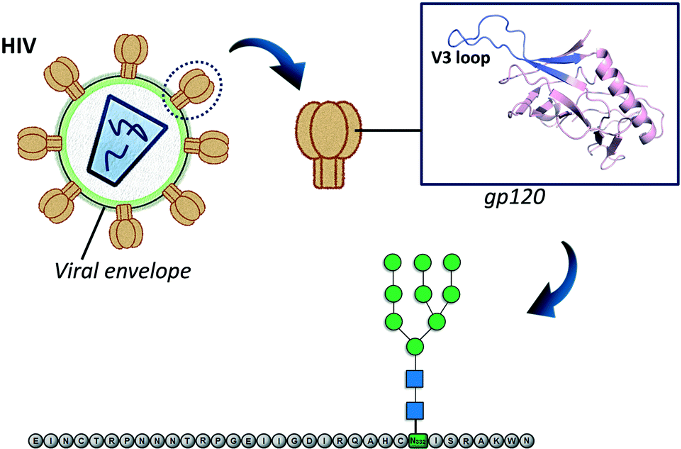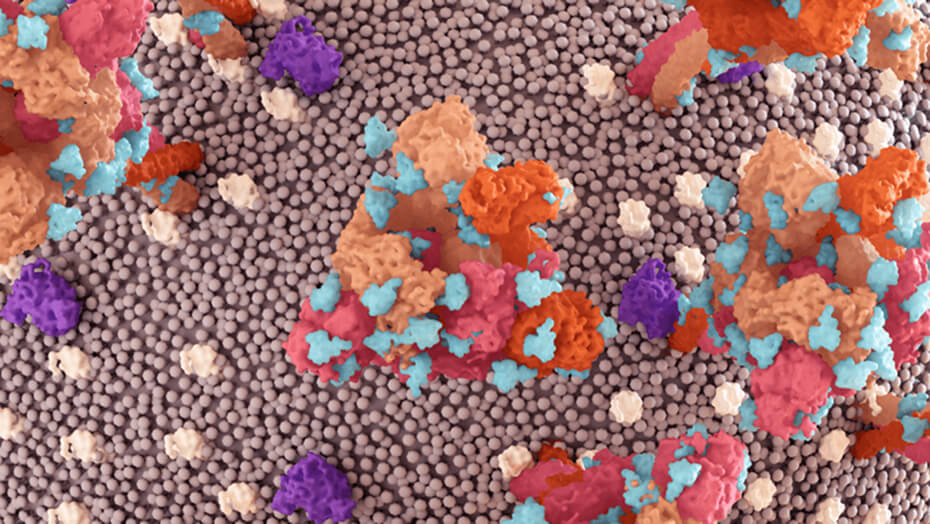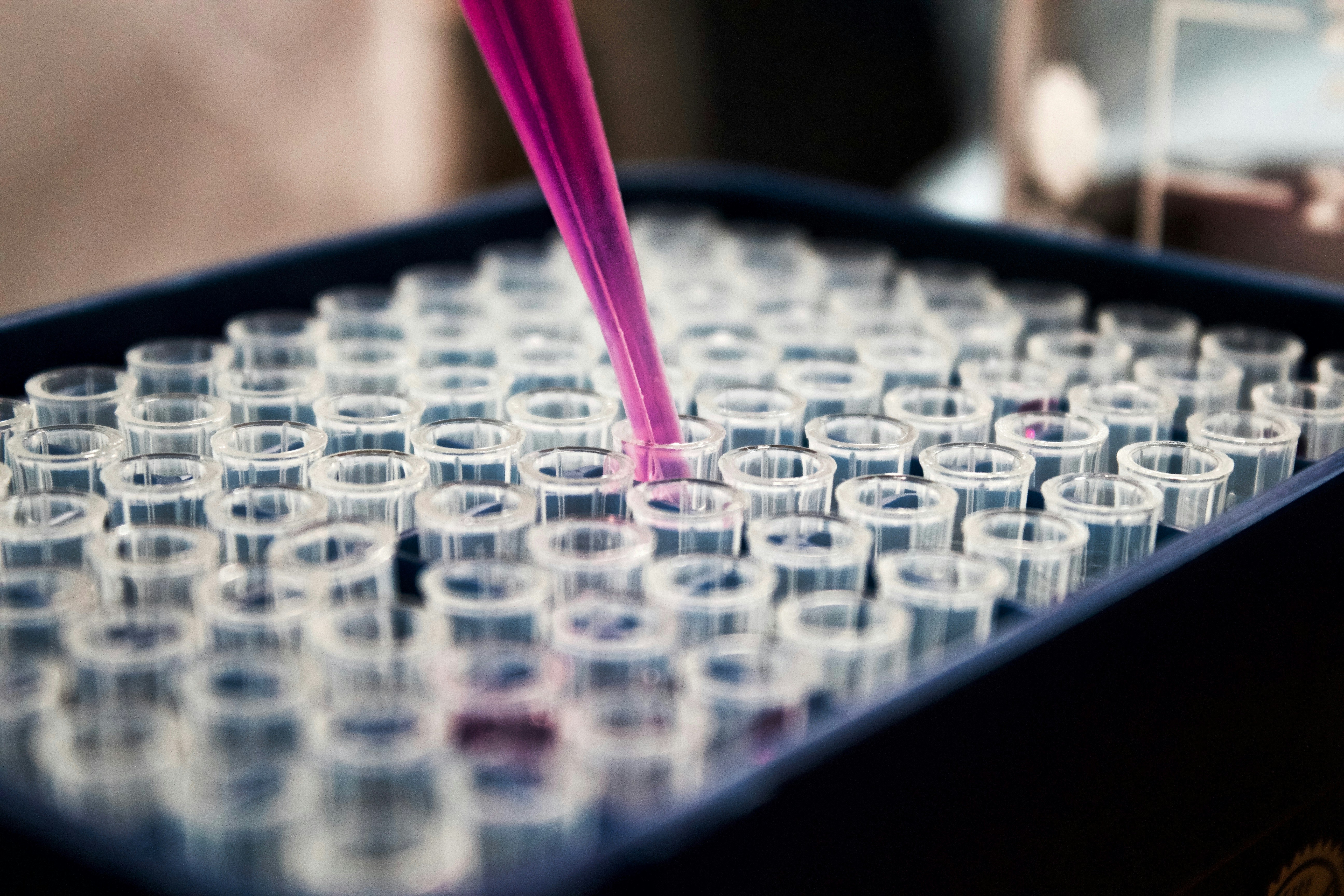Glycans in Drug Discovery - HIV Glycopeptide Antigens
Glycoproteins found at the surface of several viruses are called viral envelope glycoproteins and they are great targets for virus neutralization.

Glycoproteins found at the surface of several viruses are called viral envelope glycoproteins and they are great targets for virus neutralisation. Synthetic glycopeptides that mimic natural HIV envelope glycoproteins have been considered as anti-HIV therapy. Viral envelope glycoproteins, such as gp120 in HIV-1, have got high-mannose-type glycans (glycans that contain unsubstituted terminal mannose sugars). Those glycans are the first structures that the host immune system encounter. Although these N-glycans help to avoid neutralization and they are recognized as self-antigens, stronger antigenic responses can be achieved targeting both internal glycans and the protein surface.
Therefore, mimicking glycopeptides can be considered as a therapeutic strategy to elicit a broad antibody response. This approach was used to design and synthesis of glycopeptides which induced immune response against gp120. High-mannose N-glycan which is on V3 loop (region of gp120) at the N332 position is highly immunogenic (Figure 1). A similar approach using modified envelope trimers allowed the design of a novel immunogen (RC1) which efficiently stimulates the production of broadly neutralizing antibodies by B cells (a type of lymphocytes). The RC1 structure contains the key deletion of the N156 glycosylation site that lead to some structural changes without affecting its affinity.
Source: https://pubs.rsc.org/en/content/articlehtml/2019/md/c9md00292h



